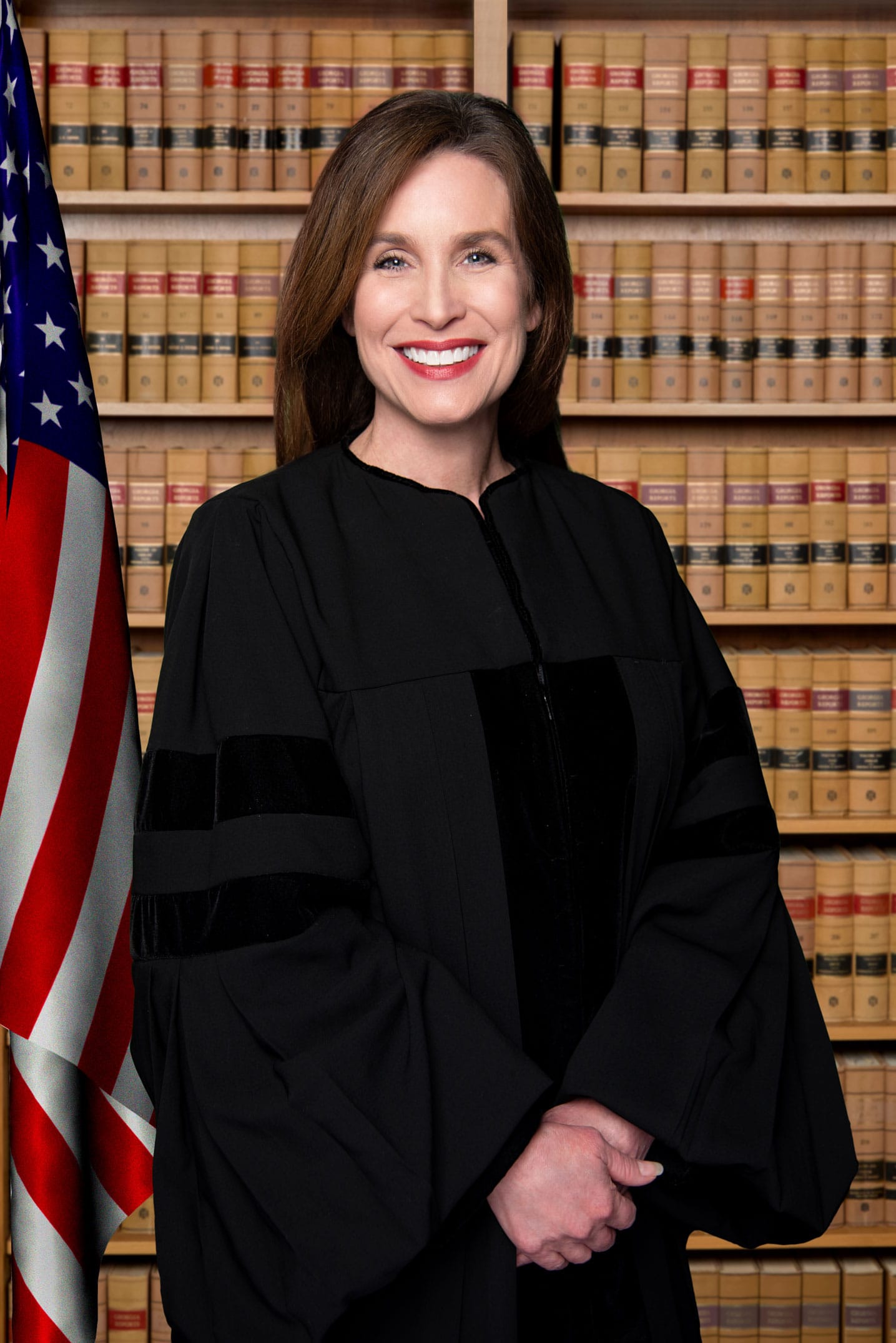Judge Paige Reese Whitaker: Balancing Justice in Atlanta
Judge Paige Reese Whitaker is a respected figure in Georgia’s legal system, presiding over courtroom 8E in the Fulton County Superior Court, Atlanta. Appointed in 2017 by Governor Nathan Deal, she has since been elected and re-elected, with her current term concluding on December 31, 2026. This article explores her career path, judicial philosophy, and contributions to the legal field.
From Charleston to Courtroom 8E: Whitaker’s Legal Journey
Whitaker’s journey began with a strong academic foundation. After graduating magna cum laude with a BA from the College of Charleston, she earned her Juris Doctor (JD) from Duke University School of Law. Rather than immediately pursuing a judgeship, Whitaker gained practical experience as a prosecutor. She served nearly seven years as a Deputy District Attorney in Fulton County and over a decade as a Senior Assistant Attorney General for Georgia. These experiences likely provided her with invaluable insight into the criminal justice system, probably shaping her approach to judging.
A Judge’s Rise: Appointment, Elections, and High-Profile Cases
Governor Deal’s appointment in 2017 marked a turning point in Whitaker’s career. Winning subsequent elections solidified her position, demonstrating public trust and a commitment to service. Presiding over the high-profile Young Thug RICO trial offered a glimpse into her judicial philosophy. While some co-defendants accepted plea deals, her pronouncements during the proceedings underscored the importance of accountability and personal responsibility. This suggests an attempt to balance justice with a recognition of individual circumstances. Another notable case involved the Prosecuting Attorneys’ Qualifications Commission, where she declined to grant an injunction. This decision, like her handling of the Young Thug trial, may have a lasting impact on Georgia’s legal landscape.
Beyond the Gavel: Bipartisan Respect and Community Engagement
Whitaker has earned bipartisan support, receiving endorsements from former Georgia Supreme Court Justices, Governors, and Attorneys General from both parties. This broad support suggests a reputation for impartiality and integrity, likely aiding her navigation of the complex political landscape surrounding her position. Beyond the courtroom, Whitaker is actively involved in her community, though further research may be needed to detail these activities. Understanding her community involvement could shed light on her values and priorities. Dive into the fascinating world of renowned artist Frankie Lozada and explore his captivating masterpieces. Uncover the secrets behind the stunning photography of Heloiza Correa and her unique perspective
Who Leads Fulton County’s Superior Court? The Current Chief Judge and Their Role
The Fulton County Superior Court, a hub of legal activity, is led by Chief Judge Ural Glanville. Assuming the role on December 1, 2022, Judge Glanville brings years of experience to this vital leadership position.
Ural Glanville: Steering Fulton County Justice
Judge Glanville’s deep understanding of the Fulton County legal system stems from his extensive experience within it. This background makes him well-suited to address the intricate challenges of leading a Superior Court.
From Magistrate to Chief Judge: Glanville’s Ascent
Judge Glanville’s career began in 1995 as a Fulton County Magistrate Judge, providing him with foundational insights into the court system. Serving in this role for nearly a decade likely honed his skills and established his reputation for fairness. In 2005, he joined the Fulton County Superior Court bench, handling more complex cases and deepening his legal expertise.
The Chief Judge’s Multifaceted Responsibilities
Being Chief Judge extends beyond presiding over cases. It involves administrative oversight, including managing the court’s budget, personnel, and resource allocation. Ensuring fair and impartial judicial assignments is another key responsibility. Judge Glanville’s combined experience as Magistrate and Superior Court Judge likely prepared him well for these diverse demands. His leadership may significantly shape the future of the Fulton County Superior Court, ensuring access to justice for the community.
Fulton County Judges: Appointed vs. Elected – Understanding the Process
The selection of judges in Fulton County involves a two-step process: gubernatorial appointment followed by a nonpartisan election.
The Appointment Process: Filling Vacancies
When a judicial seat becomes vacant, the Georgia Governor appoints a replacement, ensuring continuity in court operations. A Judicial Nominating Commission reviews potential candidates, providing the Governor with a shortlist of qualified individuals. However, this appointment is not permanent.
The Election Process: Public Accountability
Appointed judges must subsequently run in nonpartisan elections to retain their seats. This allows the public to decide who serves on the bench, acting as a check on the Governor’s power. Judge Whitaker’s career exemplifies this process; appointed in 2017, she subsequently won elections to secure her position. In 2022, she went up against part-time Fulton County Juvenile Court judge Allyson R. Pitts.
Balancing Power: A Blended Approach
This dual system attempts to balance the need to fill vacancies promptly with the democratic principle of electing public officials. However, questions remain about the system’s efficacy in balancing power and ensuring judicial independence. Comparing Fulton County’s system with other jurisdictions can offer further insights into the advantages and disadvantages of different approaches. Ongoing research and discussion continue to shape the understanding of optimal judicial selection methods.
Beyond Young Thug: Unveiling the Career of Judge Paige Reese Whitaker
Judge Paige Reese Whitaker is a notable presence in Atlanta’s legal community. Her handling of the Young Thug trial brought her into the public eye, but her career encompasses much more.
From Duke Law to the Atlanta Judicial Circuit
Whitaker’s education at the College of Charleston and Duke University School of Law laid the groundwork for her legal career. Her prosecutorial experience, first as a Deputy District Attorney in Fulton County and then as a Senior Assistant Attorney General for Georgia, provided a unique perspective on the justice system. This experience likely influenced her transition to judgeship.
Presiding Over Justice: The Young Thug Trial and Beyond
Governor Deal’s 2017 appointment marked a significant shift in Whitaker’s career. The Young Thug trial, the longest in Georgia history, highlighted her ability to manage complex, high-profile cases. Her reported courtroom efficiency and balanced approach to sentencing – delivering both “harsh and heartfelt messages” – suggest a nuanced understanding of justice. Re-elected on May 24, 2022, for a full term set to last until December 31st, 2026, Judge Reese Whitaker continues to make her mark on the 5th superior court district.
A Judge’s Impact: Questions and Future Directions
Whitaker’s career raises important questions. What motivates her judicial decisions? How has her background shaped her philosophy? With her current term ending in 2026, her future contributions to Atlanta’s legal landscape remain to be seen.
- Discover Long Black Pepper: Flavor & Health Benefits - April 25, 2025
- Shocking Twists: The Grownup Review: Unreliable Narration - April 25, 2025
- A Quiet Place Book vs Movie: A Deep Dive - April 25, 2025
















2 thoughts on “Judge Paige Reese Whitaker: Balancing Accountability and Individualized Justice in Georgia’s Courts”
Comments are closed.